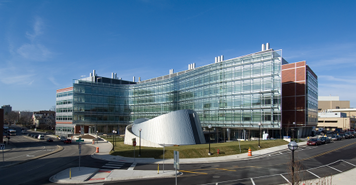When speaking about cryptography, one likely imagines a military or computerized setting, where a group of people tries fervently to decipher the coded messages of their enemy in order to gain valuable intelligence. But the same thing is happening in labs at the University of Michigan, Ann Arbor, only with microbiologists cracking the code of cancer cells.
The sorts of messages that cancer cells send are actually directed to cells of their host body: specifically, cells with the capability to heal other cells. Researchers have known for a while that tumors like to recruit healing cells; what they haven’t known is how the cancer cells enlist the healing cells in the first place. In this new study by U-M professor Russell Taichman and research associate Younghun Jung, the signals sent out by these cancer cells can now be decoded.
"Now we know what messages they send to recruit and alter those healing cells, and we can take steps to block those messages," says Taichman in a recent U-M article on the subject.

(Cancer cells in blue releasing signals in red, courtesy of U-M)
What surprised the team was that the healing cells gave the cancer cells more than they bargained for. In many cases, they not only healed the target cells but also significantly increased their productivity and spreading potential. Taichman compares this “overdrive” effect to giving sugar to a group of small children. This means that the biologists also got more than they bargained for by cracking the molecular code, as they stand now to interrupt the healing and productivity of the tumor in one fell swoop.
The next step will be to develop drugs that can scramble or stop these signals before they are sent, which would cease tumor formation and expansion at a much more early stage.
In addition, the university recently announced the opening of a Center for Systems Biology (CSB) designed specifically to focus on large-scale biomedical research. The center brings together researchers from biomedical engineering, molecular biology, quantitative imaging, and biochemistry to form cross-disciplinary teams to solve problems that require applications beyond any single field. Professor of microbiology and immunology Denise E Kirschner, who is a co-director of the new facility, explains: “The recognition of the center is an opportunity to provide support and build cohesion among faculty working in broad interdisciplinary areas.”

Expect great things from this biomedical breakthrough and new center for research collaboration. For the latest info on research funding at the University of Michigan, read our free report by clicking this button:
Biotechnology Calendar, Inc. will be returning to the University of Michigan in July 2013 for its Ann Arbor BioResearch Product Faire™ on July 18th, 2013. Biotechnology Calendar is a full service event company that has produced on-campus, life science research trade shows nationwide for the past 20 years. We plan and promote each event to bring the best products and services to the finest research campuses across the country. If you are a university researcher or a laboratory product vendor, consider attending one of our on-campus trade shows: here is our 2013 schedule.



